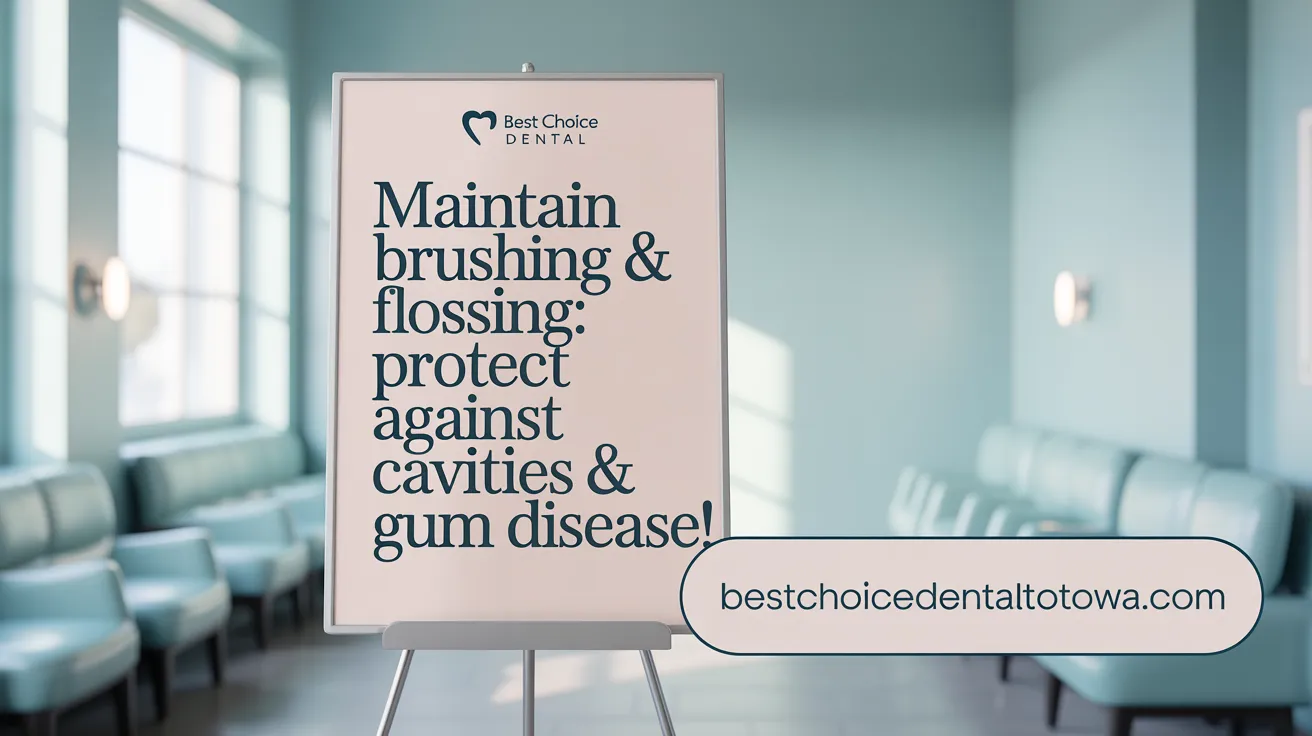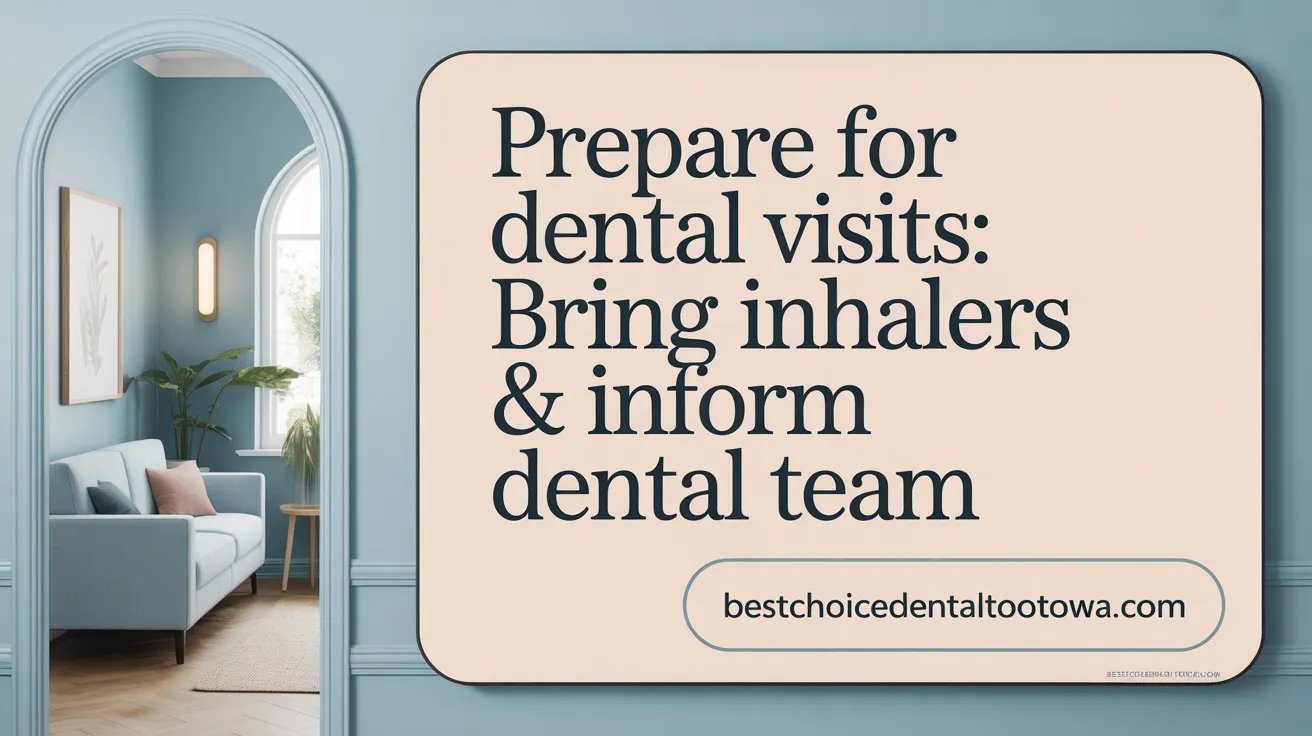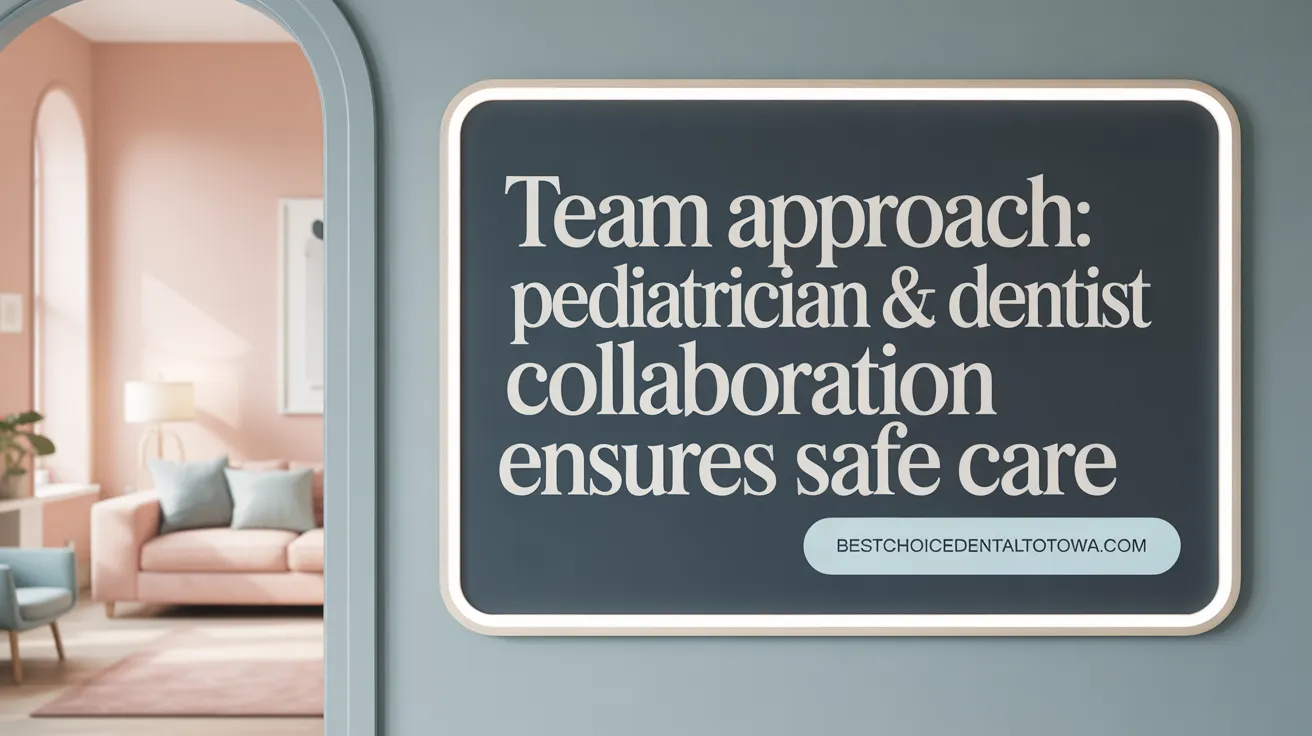Understanding the Connection Between Asthma and Oral Health
How Asthma Impacts Oral Health
Asthma, a common respiratory condition especially in children, affects oral health mainly through its treatment and symptoms. Inhaled medications like corticosteroids and bronchodilators often cause dry mouth (xerostomia), reducing saliva's natural protective action. This creates an environment where bacteria multiply more easily, leading to a higher risk of dental issues.
Oral Health Risks in Children with Asthma
Children with asthma face increased risks of dental caries (cavities), enamel erosion, and gum diseases such as gingivitis and periodontal disease. The dryness caused by inhalers and the acidity of some medications further contribute to enamel damage and fungal infections like oral thrush. Additionally, mouth breathing associated with asthma can reduce oral moisture, exacerbating these risks.
Prevalence and Significance
Asthma is a prevalent chronic disease, affecting over 6 million children in the United States. Due to the widespread use of asthma medications and the tendency for increased mouth breathing, these factors collectively contribute to notable oral health challenges in this population. Understanding these connections highlights the importance of coordinated dental care and preventive strategies for children living with asthma.
How Asthma and Its Medications Impact Oral Health
How does asthma medication affect my child's oral health?
Asthma treatments often include inhalers and corticosteroids, which can decrease saliva production, resulting in dry mouth (xerostomia). This condition reduces the natural cleansing action of saliva in the mouth. Without enough saliva, bacteria that cause cavities and gum disease can multiply more easily. Inhaled corticosteroids may also lead to oral thrush, a fungal infection that appears as white patches inside the mouth. These side effects make careful oral hygiene for asthmatic children and dental care for children with asthma essential for children with asthma.
Why does dry mouth increase cavity risk in children with asthma?
Saliva plays a crucial role in protecting teeth by neutralizing harmful acids and washing away food particles and bacteria. When asthma medications reduce saliva flow, the mouth becomes dry, creating an environment where cavity-causing bacteria thrive. This leads to increased plaque buildup, higher risk of enamel erosion, and tooth decay. Managing dry mouth from asthma medication and dry mouth from bronchodilators is important in preventing cavity risk in asthmatic children.
What oral health issues are common in children with asthma?
- Dry Mouth: Caused by bronchodilators and corticosteroids, leading to bacterial growth and decay. See effects of bronchodilators on oral health.
- Oral Thrush: Resulting from steroid use, marked by white patches inside the mouth. Refer to oral thrush in children with asthma.
- Enamel Erosion: Some asthma medications have low pH, which can wear down tooth enamel. Read about enamel defects in children with asthma.
- Gingivitis and Periodontitis: Inhaled steroids relate to increased gum inflammation and higher rates of gingivitis. See gingivitis associated with inhaled steroids.
- Malocclusion: Asthmatic children may show dental misalignments such as high palate and posterior crossbites, impacting overall dental health. Learn about facial and dental features in children with asthma.
How does mouth breathing and inhaler use influence dental health?
Children with asthma often breathe through the mouth, which further dries oral tissues and raises cavity risk. Proper dental care includes rinsing techniques after inhaler use to reduce dryness and prevent fungal infections. Parents should ensure children follow good oral hygiene for asthmatic children, including brushing twice daily with fluoride toothpaste and regular dental check-ups every 6 months.
Combined with regular dental care and preventive treatments, managing these asthma-related oral health challenges helps protect your child's smile and overall well-being.
Preventive Oral Hygiene and Dental Care Practices for Asthmatic Children

When should my child with asthma start dental checkups?
Children with asthma should begin regular dental visits by 12 months of age. Early dental examinations allow pediatric dentists to detect cavities, enamel defects, and other oral health issues common in asthmatic children, supporting timely intervention and prevention. For more information, see Dental health in children with asthma.
What oral hygiene routines are recommended for children with asthma?
Maintaining excellent oral hygiene is crucial. Brushing twice daily with fluoride toothpaste and flossing every night reduce plaque buildup that can worsen due to dry mouth from asthma medications. Parents should help with brushing until about age 8 to ensure proper technique. Drinking fluoridated water further strengthens teeth. Refer to Oral hygiene tips for children with asthma.
How can diet influence my asthmatic child's dental health?
Diet plays an important role. Limiting sugary foods and drinks, particularly between meals, decreases the risk of cavities caused by bacteria that thrive on sugars. Nutritious snacks such as celery, carrots, and yogurt promote oral and overall health. See Oral Health Diet Tips for more details.
Additional Preventive Measures
- Rinsing after inhaler use: Asthmatic children should rinse their mouth with water after using inhalers to reduce medication residues such as corticosteroids that can cause dry mouth and fungal infections. Guidance available in Rinsing techniques after inhaler use.
- Topical fluoride and dental sealants: Pediatric dentists may apply topical fluoride treatments and sealants on molars to protect vulnerable tooth surfaces from decay. Learn more at Topical fluoride and sealants for respiratory disorders.
- Role of pediatric dentists: Pediatric dentists are specially trained to manage children with asthma, offering tailored preventive strategies and coordinating care with other healthcare providers for safe, comfortable dental visits. See Care for Your Child's Teeth.
These preventive oral care practices help mitigate the increased risk of dental caries, enamel erosion, and gum disease in children with asthma, ensuring healthier smiles and better quality of life. Additional comprehensive guidance can be found at Dental care for children with asthma.
Managing Dental Visits Safely for Children with Asthma

What should I do to prepare my child with asthma for dental visits?
Preparing your child for dental visits involves several important steps. Ensuring that your child takes their asthma medication exactly as prescribed is essential for maintaining control during the appointment. Always bring their inhaler along to the dental office, as having it on hand can help quickly manage any asthma symptoms that arise. It's also beneficial for your child to get a good night's rest before the appointment to reduce stress and improve their overall response to treatment.
Informing the dental team about your child's asthma history, current level of control, specific triggers, and medications is vital. This communication enables the dentist to plan and tailor dental care appropriately, ensuring your child's safety and comfort throughout the procedure. For detailed guidance on this, see Preparing for dental visits with asthma.
Is it safe for my child with asthma to receive sedation or laughing gas during dental treatment?
For children with mild to moderate asthma, nitrous oxide, commonly known as laughing gas, is generally a safe option to manage anxiety during dental appointments. This can make treatments less stressful for young patients.
In cases where sedation is considered necessary, it must be carefully coordinated between your child's pediatrician and dentist. This collaboration ensures that any sedation techniques used are appropriate and safe, taking into account the child’s asthma severity and overall health. More information can be found at Sedation considerations for children with asthma.
How does communication between pediatricians and dentists support safe dental care?
Close coordination between pediatricians and dentists for asthma helps manage your child's asthma effectively during dental treatments. This partnership ensures that medical considerations, medication adjustments, and emergency plans are aligned, promoting a smooth and safe dental experience. Refer to Coordinating care between pediatrician and dentist for more on this topic.
What behavior management strategies help during dental visits?
Behavioral techniques like gentle reassurance and the use of nitrous oxide can help calm children with asthma during treatments. Sedation may be applied when necessary after professional consultation to reduce anxiety and prevent asthma exacerbations triggered by stress. For recommendations, visit Behavior management for pediatric dental patients with asthma.
What safety protocols and emergency readiness are recommended?
Dental offices caring for children with asthma should have established protocols, including easy access to inhalers and emergency medications like EpiPen use in children with allergies. Staff trained in recognizing and managing asthma attacks and allergic reactions can provide prompt and effective care, ensuring your child's safety. For comprehensive details, check EpiPen use in children with allergies.
Following these practices allows children with asthma to receive dental care comfortably and safely, minimizing risks and supporting their overall health.
Addressing Special Considerations and Risks in Oral Health for Asthmatic Children

Are there any special dental health risks for children with asthma?
Children with asthma often present specific physical and anatomical features influencing dental care. Many show a high palate and a higher prevalence of posterior crossbites, which are types of dental malocclusion requiring orthodontic evaluation and possibly early intervention. Additionally, frequent mouth breathing—common during asthma episodes—leads to oral dryness, promoting gingivitis and increasing susceptibility to periodontal disease.
Prolonged use of asthma medications including inhaled corticosteroids and bronchodilators can affect both dental enamel and soft tissues. These medications may reduce saliva production, causing dry mouth that facilitates bacterial growth, enamel erosion, and higher risk of oral fungal infections such as thrush. The low pH and lactose content of some medications also contribute to dental erosion. For detailed information on the effects of asthma medications on oral health, see Impact of asthma medication on saliva production.
Certain medications, notably aspirin, should be avoided in asthmatic children as they may trigger or worsen asthma attacks; alternatives like acetaminophen are preferred for pain relief to protect respiratory and oral health. Learn more about Avoiding aspirin in asthmatic patients.
How can parents help prevent dental injuries in asthmatic children?
Preventing dental trauma is critical, especially since inflammation related to asthma might increase vulnerability in oral tissues. Parents can help by ensuring children wear well-fitted mouth guards for children with asthma and allergies during sports or other physical activities to protect against oral-facial injuries.
Educating children on avoiding habits or behaviors that lead to oral trauma, such as rough play or improper use of objects in the mouth, further enhances safety. Regular communication with the dental team about injury prevention and emergency protocols empowers parents to maintain comprehensive oral care. For guidance on Prevention of oral-facial injuries and Parental guidance on oral care for asthmatic children, consult relevant resources.
By addressing these special considerations and risks with proactive dental care and preventive strategies, parents and dental professionals can work together to support the oral health in children with asthma and overall well-being of children with asthma.
Collaborative Care and Long-Term Maintenance for Oral Health in Asthmatic Children

How can my child's healthcare providers work together to support oral health?
Parents, pediatricians, and dentists must maintain open communication to effectively manage a child's oral health alongside asthma treatment. Sharing information about the child's asthma control, medication use, and triggers allows dental providers to customize preventive care and treatments that consider asthma severity (Dental health in children with asthma).
Regular updates between the child's medical and dental teams ensure all precautions are in place during dental visits, including safe medication practices and emergency preparedness such as having an inhaler or EpiPen readily available.
What long-term strategies help maintain oral health in children with asthma?
Maintaining strong oral health requires ongoing efforts. Children with asthma benefit from dental visits every six months, which enable early detection of issues like cavities and gingivitis.
Preventive measures such as fluoride toothpaste, topical fluoride applications, and dental sealants protect teeth from decay. Furthermore, parents should guide their children in brushing twice daily and flossing once daily, with help until about age eight (Parental role in children's dental hygiene.
Dietary habits are equally important; limiting sugary foods and drinks, especially between meals, reduces cavity risk (Limiting sugary drinks and snacks). Families also receive education on avoiding behaviors like prolonged bottle feeding and ensuring thorough rinsing after inhaler use.
Each child's care is tailored based on individual risk factors and the severity of their asthma, providing a comprehensive approach to preserving oral health while managing respiratory needs (Dental care for children with asthma.
Empowering Parents to Safeguard Their Child’s Smile While Managing Asthma
Understanding Oral Health Risks in Children with Asthma
Children with asthma face unique oral health challenges due to their condition and the medications used for treatment. Common issues include dry mouth, which reduces saliva that protects teeth, increasing the risk of cavities and gum disease. Inhaled corticosteroids can cause oral thrush and contribute to enamel sensitivity. Asthmatic children may also experience gingivitis and dental malocclusions like high palate or crossbites.
The Importance of Proactive Dental Care
Regular dental visits are essential, ideally starting by age one and continuing every six months or more frequently if recommended. Bringing your child’s inhaler to appointments and informing the dentist about their asthma and medications ensures tailored, safe care. Preventive strategies such as brushing twice daily with fluoride toothpaste, flossing, rinsing after inhaler use, limiting sugary snacks, and applying fluoride treatments help reduce oral risks.
Collaborating with Healthcare Providers
Effective management involves open communication between parents, pediatricians, and dentists. Discussing your child’s asthma control and oral health facilitates appropriate adjustments to treatment and dental plans. Always seek personalized advice to balance asthma management with maintaining a healthy smile.
Empowering yourself with this knowledge fosters confident care, ensuring your child’s oral health thrives alongside managing asthma.
